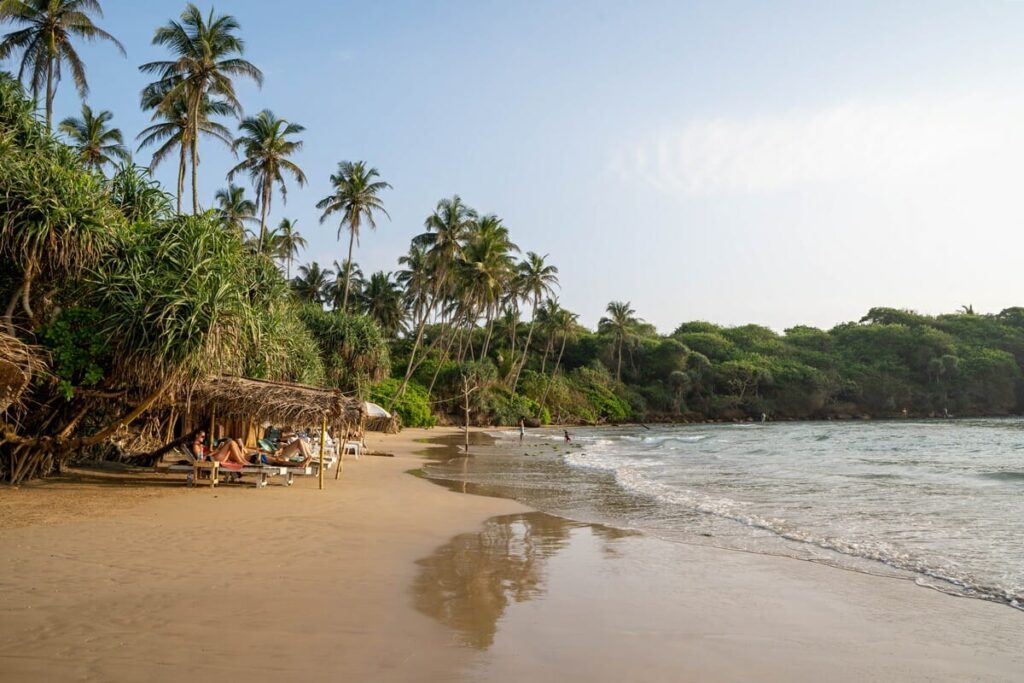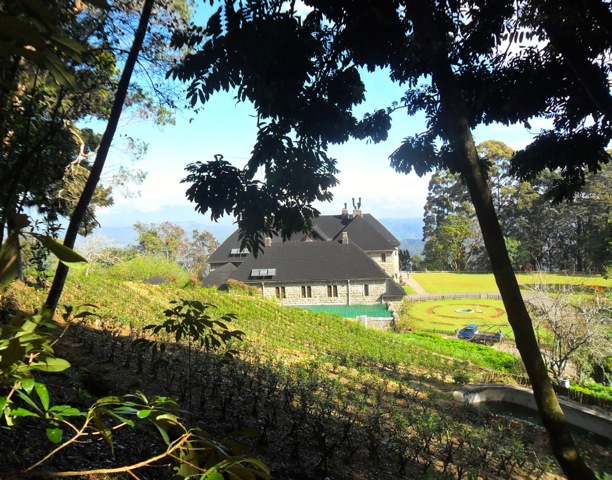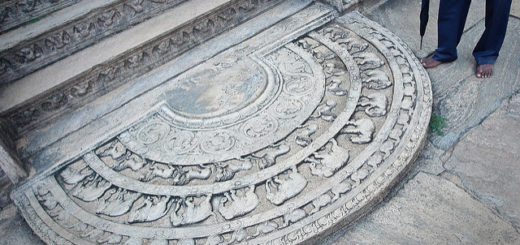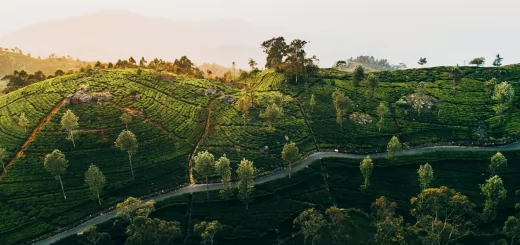Is It Safe to Travel to Sri Lanka Right Now? – Article by Australian travel blogger, Flo.
by Jetwing · Published · Updated

If you’re still wondering about why you should be visiting Sri Lanka today, here’s all you need to know! Australian travel blogger, Flo shares her latest article about her experience on this beautiful island.
The article reads as follows:
All Your Questions Answered About Sri Lanka Travel Safety (2023)
Planning a trip to Sri Lanka in 2023? Read this first! It almost pains me that this article is necessary these days, but I am constantly being asked “is Sri Lanka safe?” and “you’re bringing your baby to Sri Lanka? Really?”
It is my hope that with time this guide on Sri Lanka travel safety becomes obsolete, but I am fully cognizant of the reasons for any hesitations in planning a trip to Sri Lanka in 2023.
After all, we were plagued by the same concerns when we saw the international news headlines about 12-hour long power cuts, police road blocks and a lack of medication and food in Sri Lanka in mid-2022. Coupled with the protests in Colombo over the spiraling economic crisis, we eventually decided to postpone our summer trip to Sri Lanka in 2022.
Destination Sri Lanka
Fast forward a few months later to October 2022, the conversation about Sri Lanka travel safety is already significantly different and we have just wrapped up an amazing 6-week stint in our beautiful island home on the south coast. I can now share some first-hand experiences to help you decide whether visiting Sri Lanka is safe and a good idea for you.
Trust me when I say that the situation in Sri Lanka (as of November 2022), although fluid and far from being resolved, is much improved. As a tourist, visiting Sri Lanka now is likely to pose certain travel inconveniences but your personal safety is unlikely to be in jeopardy as a result of the political situation if you are simply planning an island getaway in some of Sri Lanka’s best tourist destinations.
First of all, let me preface this guide with this statement: we all have a very different comfort level when it comes to travel safety, and slightly different definitions of whether a destination is safe to visit or not.
If you are asking yourself, “is it safe to travel to Sri Lanka now?” you will need to understand that what I may deem an acceptable level of risk may not be an acceptable risk to you. With that in mind, let’s dive straight into the main topic!
Sri Lanka is a safe travel destination…
But there are a few things you should know regarding safety and security before traveling to Sri Lanka. Let’s get started with a little bit of background:
Sri Lanka has made international news headlines a few times since the end of the 20-year long civil war in 2009: a 10-day state of emergency was declared in March 2018 due to violent unrest between the Buddhist and Muslim communities in Kandy; political unrest and protests took place in late 2018; and several hotels and churches in major cities in Sri Lanka were attacked on Easter Sunday in 2019.
Most recently in early 2022, the people of Sri Lanka took to the streets to protest the spiraling economic crisis that halted the import of medication, fuel, gas and food, and caused massive inflation as well as increased cost of living. The currency was also devalued almost overnight.
The majority of the protests were peaceful – however there were instances of clashes with the authorities and snap curfews were implemented throughout April to August. Since then, there has been an upheaval in the government and cabinet, with the former Prime Minister being placed as the new President of the interim government (elections are not for another 2 years). This government hopes to work with the IMF for financial assistance in 2023.
What is the situation in Sri Lanka?
I will do my best to keep this article updated, but in short planning a trip to Sri Lanka now will require more thought and due diligence. That being said, everyone is working hard to make sure the country is ready to welcome tourists once again. Here is what you need to know for anyone contemplating a Sri Lanka trip:
If you are unvaccinated or not fully vaccinated you will no longer need to quarantine on arrival in Sri Lanka, and as of December 7th no pre-arrival PCR or RAT tests are required for inbound passengers. The health declaration is no longer required, and the insurance is no longer mandatory but can be purchased on arrival. In other words – all pandemic-related restrictions for entering Sri Lanka have been removed.
The Sri Lanka e-visa system is still up and running but the payment gateway is fairly buggy – if it declines your payment try another card. Sri Lanka is currently offering extended 180 day e-visas, up from 30 days, and the fees will be increased as of 1 December 2022. You must ensure that you do not overstay your visa as the penalties are hefty.
Due to the currency devaluation you will notice that prices for goods and services have gone up – however, the dollar-amounts remain approximately the same. As a tourist, you can exchange foreign currency at the airport upon landing (keep the receipt) so that you have some cash in hand. Tips are always deeply appreciated by those in the service industry, but most places will add a service charge and VAT on top of your bill. With that said, now is really not the time to haggle over a few dollars, if you are not happy with a quoted price simply move onto the next hotel, tuk tuk, transport company or service provider.
Local supermarkets are full of fresh produce – albeit more expensive now. Roadside market stalls also have lots of fresh fruit and vegetables on offer. Imported products are rare, and if you find them they are also more expensive than before. Restaurants in the south coast of Sri Lanka are slowly but surely reopening for the upcoming peak season and many events are being scheduled. Check their opening times as they may vary throughout the week.
Recently we have had twice-daily 1-1.5 hour long scheduled power cuts along the south coast, typically in the afternoons and early evenings. These power cuts in Sri Lanka (or “power shedding/demand management”) are scheduled by area – you can use this website to check the upcoming power cut times. They are usually announced a day or so in advance, if you aren’t sure what zone your hotel/guesthouse falls into ask reception.
These power cuts have been manageable but consider bringing a rechargeable USB lamp for the outages. Large hotel chains should have generators to provide uninterrupted power supply, but smaller boutique hotels and guesthouses may not have consistent access to diesel to run their generators. The power cuts may increase in length over the coming months – it fluctuates and no one is able to say for certain how long next week’s power cuts will be as it depends on whether the country is able to continue paying for and importing fuel.
There are minimal fuel lines but the supply is still limited with a QR code system put in place for fuel rationing. Registered tourism operators are provided with the necessary supply so that tourism vehicles can continue to carry out their services. This system appears to be working for now and self-driving tourists can purchase a rechargeable fuel pass which we haven’t tried yet. Some petrol stations may close once their supply has run out, and you or your driver will need to check the next station to see if they have any stock.
That being said, the recommended and most efficient mode of transport in Sri Lanka is still private car transfer; alternatively, tuk tuks, buses and trains are still running. Read more about what to know before visiting Sri Lanka here.
The economic crisis has led to a shortage in medicine, and we brought along lots of over-the-counter medication just in case, but have had no issues purchasing standard meds like adult and infant Panadol from local pharmacies. Visitors who have certain medical supply needs should plan accordingly as it may not be possible to purchase required medication in Sri Lanka.
Hospitals are open and we have not had long waits at private hospitals to see a general practitioner. In general, due to the long drive times and unpredictable road traffic in Sri Lanka (especially in more remote areas) you will need to consider your proximity to the nearest hospital – Asiri, Durdans and Nawaloka operate private hospitals around the country and are reliable options in the event of a medical emergency.
Most countries have lifted travel advisories against traveling to Sri Lanka. However, it is prudent to check directly with your country’s foreign office on their advice, and ensure that your travel insurance is valid. The political tensions have eased, but public demonstrations may continue to take place sporadically in major cities. Tourists are advised against taking part in or attending these protests.
The regulations change quickly, and snap lockdowns, curfews, interprovincial travel restrictions and last-minute closure of tourist sites may be implemented without warning.
Tourists numbers are still somewhat sluggish but slowly picking up again towards the end of 2022. Major tourism destinations like Sigiriya, Yala National Park, Kandy and the beaches in south Sri Lanka are open.
Surfers are riding peeling waves in the warm Indian Ocean and culture vultures are exploring ancient ruins around the country.
Personally, our trip to Sri Lanka has been only slightly different to trips in the past as we are facing new challenges around traveling with an infant. Apart from the usual struggles involving nap times, feeding and opportunities to socialize with other children, we have experienced inconveniences with power cuts at our village house (we do not have a generator) and occasionally having to visit multiple petrol stations to fill up the car.
We were warmly welcomed back by our neighbors in our local village and have thoroughly enjoyed our afternoons under the palm trees at Hiriketiya beach, plenty of catch ups over coffee and cocktails with friends, and cuddles with our cat.
It makes me remember why every trip to Sri Lanka used to fill me with excitement and joy.
So, should you travel to Sri Lanka?
Though tourist numbers have dwindled compared to previous years, the south coast of Sri Lanka is still hopeful for a successful peak season from December 2022 before the season swings over to the island’s east coast in summer 2023.
It’s important to remember that over 2 million people are still dependent on the tourism industry. As a small tourism business owner in Sri Lanka, it has been an uphill battle – first the devastating bombings, then the pandemic hit.
Is tourism the solution? No, it isn’t going to fix things overnight, this hole will take decades to crawl out of. However, it is a short-term lifeline to many small businesses and their employees around the island, many of whom have been out of work for the better part of a year.
So, is it safe to visit Sri Lanka now? Ultimately, the decision to travel to and around Sri Lanka is yours, and may require a change in mindset and expectations. The best thing you can do as a tourist is to be understanding and patient of the situation in Sri Lanka – many people rely heavily on tourism dollars and will welcome you with open arms.
It may not be the right destination for every type of traveler at this very moment. If you have a rigid set of expectations and do not cope well with unpredictability, or are used to tourism destinations with more established infrastructure, you may want to think long and hard about whether you will be able to adapt and be flexible during your Sri Lanka travels.
I also encourage you to check with your country’s foreign office on the latest travel advisory status, contact your travel insurance provider to enquire about coverage, and stay informed by keeping a close eye on the news – the BBC, Reuters and Associated Press tend to be reliable and timely news sources.
Sri Lankan people are famous for their hospitality, and violent crimes towards tourists are virtually unheard of. Just as you would for any other country that you travel to, exercise a reasonable amount of caution and be aware of your surroundings. It may also be prudent to avoid large, crowded gatherings and places of worship during major religious holidays such as the Sinhalese New Year or Tamil New Year (mid-April), Vesak Day to celebrate Buddha’s birthday (first full moon in May), Easter or Christmas.
It also makes sense not to flash money around and leave expensive jewellery and electronics in your hotel room or at home. You should keep a close eye on your personal belongings when you head out as petty theft is a common issue in popular tourist areas. Sri Lanka’s tourist police are very responsive and any incidents should be reported to them promptly – dial 1912 to get in touch with them, or 119 to reach emergency services.
I hope this helps you when deciding whether it is safe to travel to Sri Lanka and if a trip to the pearl of the Indian Ocean is on the cards.
Source: www.yogawinetravel.com




